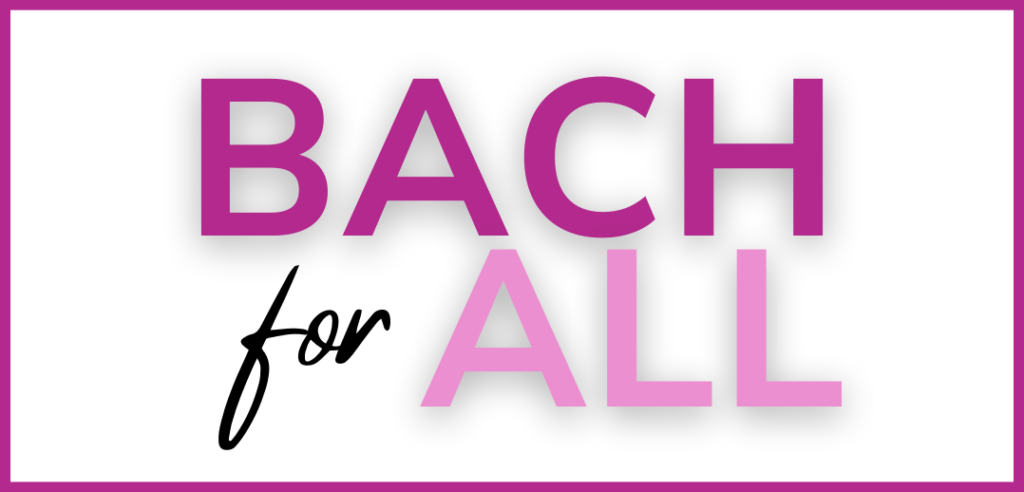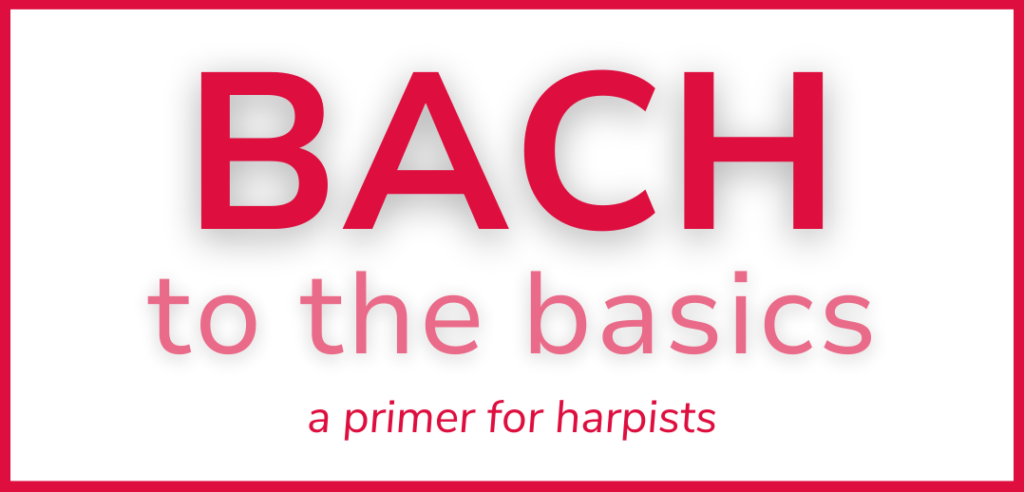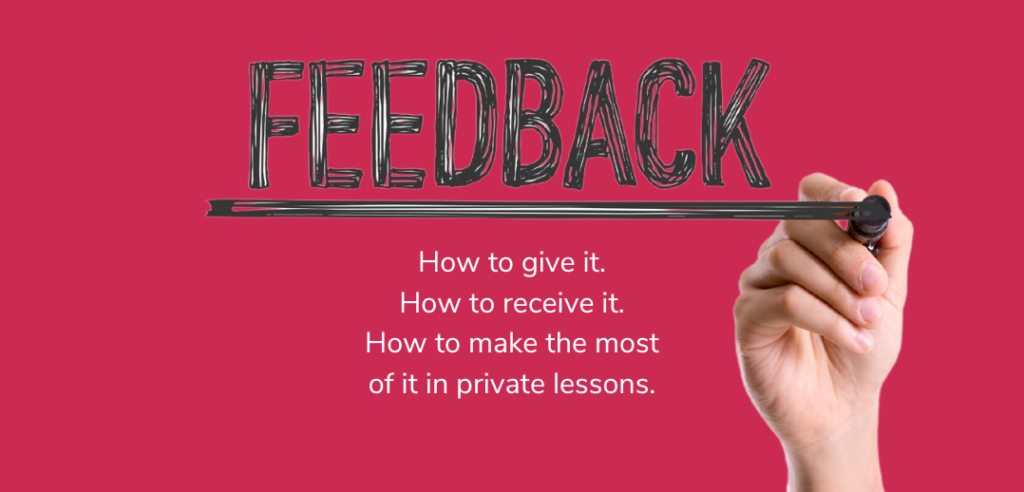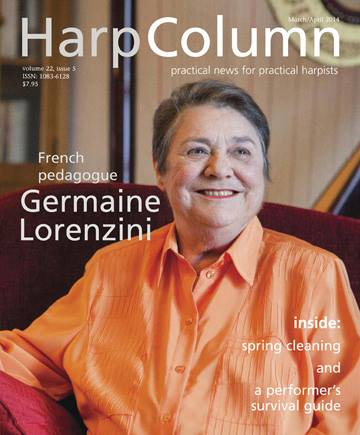Forget your music? Duo partner fall sick? Subbing on “Tzigane” with no rehearsals? This survival guide will help you keep your cool when the gig doesn’t go as planned.
If you have ever awakened in the middle of the night in a cold sweat and thought, “Oh, no! I have six hours to learn the Glière concerto,” you are familiar with the concept of a “musician’s worst nightmare.” You know, one of those panic-filled dreams where you’re woefully unprepared—you’re the only person on stage at a summer orchestra concert dressed in a black blouse and white pants, or you find out moments before your concerto performance that you’re expected to play a completely different piece that you have never played before. (Jump to the end for Orchestral Survival Skills!)
But what happens when that nightmare scenario becomes reality? As much as we endeavor to make every performance perfect, we also have to be prepared for the unpredictable. As the saying goes, “Hope for the best, prepare for the worst.” Strings break, clients are temperamental, illness and weather-related disasters strike without warning, and emergency calls come at all hours.
I was on the receiving end of one such emergency call last year, from an orchestra contractor at a local university. You could hear the panic in her voice.
“Are you available to play Petrouchka on Monday?” It was just after 5 p.m. on Saturday.
I checked my calendar. “Sure, but it has been a while since I’ve played the part—several years. When are the rehearsals?”
“Oh, there aren’t any. There is a 15-minute sound check before the concert, and the conductor will talk through tempos when you get there. We can get you the music Monday morning.”
As soon as I picked up the part, I entered what I call “survival mode”—I blocked out any extraneous thoughts and focused on the task at hand.
Every musician deals with “survival mode” a little differently, and luckily, most of the emergencies we face as harpists aren’t of the “life or death” variety, unlike most of the ones detailed in those “worst-case scenario” books.
Survival as a musician comes down to being prepared, being flexible, and knowing a few key tips and tricks in times of crisis. If you have ever wanted to call HARP-9-1-1 read on.
Prepare, Practice, Listen
How well you perform under pressure correlates directly with how prepared you are. There is no substitute for careful practicing, memory work, and a solid technical foundation in helping you sound your best. Think of it as developing good habits. The key is to develop good musical and professional instincts, so that in times of crisis, the right solutions will be at your fingertips.
Practice is cumulative. Everything you do at the harp, including conditioning exercises, etudes, orchestral excerpts, sight-reading, perfecting solo repertoire, and the careful marking of fingerings and repair points prepares you for one month, 10 months, and 10 years down the road. Think about that. You’re not practicing for tomorrow; you’re training your fingers for next year! Everything you do contributes to your strength as a player, and your overall “emergency preparedness.”
Listening is an integral part of preparing any piece of music, especially when it is an unfamiliar piece or one you have been asked to play at the last minute.
When I received the call to play Petrouchka without any rehearsals, the first thing I did was listen to several recordings. Luckily, it’s one of the few full scores I own, so I was able to follow along with the music, and although I was already somewhat familiar with the piece, it was a helpful reminder of the parts of the piece with the most harp.
Next I made a plan—the most critical parts first. By starting with most exposed sections — the fast waltz in the third tableau where the harp accompanies the flutes, English horn, and trumpet, and the jubilant glisses in the fourth tableau — I was able to structure my practicing so that I started with the most difficult material first, but my entire plan was based on listening to the music first.
For orchestra music, getting your hands on a score is immensely helpful. If you don’t have access to a music library and need a score, the International Music Score Library Project (IMSLP) website, imslp.org, provides free access to classical sheet music in the public domain. For more recent and copyrighted works, many of the major harp parts are available from your favorite harp retail outlet.
With today’s technology, the task of finding high-quality recordings is easier than ever. YouTube and iTunes include hundreds of thousands of recordings, including live performances by major orchestras, operas, and historical archives that have been digitized.
Videos can be particularly helpful in showing a conductor’s beat pattern, cues, or a harpist’s fingerings—just remember to take all of the tempos you hear with a grain of salt, and be prepared to playthings faster or slower.
On Your Mark
Some situations do not allow enough time to write in fingerings or even pedals. But if you have the luxury of a little time, a clearly marked part can make the difference between a complete disaster and overwhelming success when you’re under pressure.
It goes without saying that pedals, fingerings, and pedal diagrams need to be marked clearly. Everyone’s hands are different, and by choosing fingerings that are comfortable for you and convey the correct phrasing, you eliminate one more thing for your brain to have to process when you’re in “survival mode.”
I’m a fan of splitting things between the hands whenever possible, but you have to be willing to experiment to find what works for you. Quite often, an arpeggiated passage involving tricky crossovers that are doubled in thirds or sixths can sound more confident using a cross-fingering of 1-3/2-4 or alternating hands.
In orchestra, cues indicating what is happening in the music during large spans of rests are incredibly helpful. Be prepared to add these during your listening and score study beforehand, or at the first rehearsal. Even if you are rock-solid at counting rests, it never hurts to have a backup plan. You should know where everyone else’s solos are and who you are accompanying at any given time.
Editing can also be a lifesaver when you’re pressed for time. By “editing” I do not mean leaving out notes because you haven’t practiced enough or can’t quite play the notes up to tempo. I am talking about published parts that are awkward for the instrument, chromatically impossible, or unplayable.
When you are scrambling to figure out fingerings or find a marked part in a hurry, don’t hesitate to ask fellow harpists for help. This is where having harp colleagues you can rely on is invaluable. Chances are, someone you know has played the part and knows a quick-fix fingering or pedaling solution. Don’t hesitate to reach out to your extended harp community on Facebook or Harp Column if you’re in need of help!
Real-Life Survival Scenarios
Sometimes the ability to adapt extends far beyond the music itself. When unexpected issues arise that are beyond our control, grace under pressure, a sense of humor, and mental focus can help us handle life’s curveballs.
Scenario: Due to circumstances beyond your control, there is an emergency right before (or during) a concert.
New York-based harpist Brandee Younger’s creative solution saved a concert by turning it into an interactive experience for the audience when one of the musicians in her group was stuck in traffic. “Since most of the music was centered around him, I wasn’t sure what we were going to do,” she said. “It would have been impossible to pull off the entire program without him.”
Thinking quickly, she was able to buy some time by addressing the audience and explaining a bit about the lives of the composers and arrangers whose music they were playing, which she had made a point to study ahead of time.
“When it became evident that he wasn’t going to make it, I remembered that we were in a church and asked everyone to pull out their hymnals, including the ensemble on stage. We opened the program with a hymn and had the audience sing along. I was panicking because I knew we couldn’t get away with this for 90 minutes, but two hymns later, he showed up and it was business as usual.”
The ability to handle challenging situations gracefully is a hallmark of a well-equipped musician. I remember one recital in which a harpist turned a broken string into an educational opportunity. After a string popped mid-recital, she calmly walked off stage, returned with her string bag, and talked the audience through the entire process, explaining how the pedals and mechanisms worked. You can bet that the audience didn’t care about the broken string after that!
Scenario: You have been asked to play a 45-minute solo program on a few hours’ notice, or the event at which you’re performing unexpectedly overran the scheduled time, and you need extra music.
When asked what they thought was the number one survival tool, nearly every harpist I spoke with noted the importance of having “performance-ready” solos in your fingers at all times.
You never know when you might be called to fill in at the last minute, notes Erin Earl Wood, harp teacher at the University of Kansas.
“When I was in college, I got a frantic phone call from a harpist in another city, who told me she had slipped and broken her ankle and had a recital at a church starting in an hour,” Wood recalls. “I could tell she was desperate, so I hurried to get dressed and pack up the harp. I was grateful that I had followed my teacher’s advice to always have at least 20 minutes of memorized music under your fingers that you could perform at any time.
Fortunately it was December, and I was able to intersperse arrangements of Christmas carols with my memorized solos. The recital was a success because I had a repertoire of well-loved pieces under my fingers that I had performed many times.”
Similarly, it is important to always have extra music on hand for weddings and background gigs. I can’t tell you how many weddings I have played where the prelude music lasts longer than anticipated because there’s an emergency with a bridesmaid’s dress, or the bride and groom haven’t arrived yet, or guests are stuck in traffic. One time, it nearly turned into a 45-minute recital of flute and harp music as we were waiting for the bridal party to arrive.
Always pack extra music just in case, or be able to play an hour or two of music by memory or by ear.
Scenario: You have alternating performances of A Ceremony of Carols, Pines of Rome, and Don Juancoming up, and have a nasty blister developing on your right-hand thumb.
Some harpists swear by Super Glue in extreme cases of peeling and cracking fingers. Another secret weapon is tincture of myrrh, which has healing properties and can help soothe chapped skin and blisters.
For small cuts when you don’t want to wrap your finger in a bulky Band-Aid, both Kate Rogers of the Fairfax Symphony and Baltimore Symphony harpist Sarah Fuller recommend medical tape (the flexible cloth kind).
Scenario: Your gig bag goes missing with your music, shoes, and other necessary equipment.
Harpists usually travel with a plethora of tools and accessories to keep our instruments in shape and help us perform our best. But it is important not to rely too heavily on having all the right “stuff,” because unexpected things can happen; airlines can lose your luggage or you can accidentally leave something at home.
This is especially challenging in a high-pressure national audition. San Diego Symphony principal harpist Julie Smith Phillips notes, “It’s important to do a lot of mental practice and preparation, seeing exactly how things will go in your mind before you even walk out on stage. Practice this a lot, just in case your shoes, music, and luggage don’t arrive with you at your performance or audition—yes, this happened to me! One must be flexible in any situation, especially when you don’t have your ‘gear.’ Experience helps with being flexible, but you can also prepare the way you play by being mentally ready.”
It is a good idea to simulate unpredictable conditions that could arise at auditions or out-of-town performances by practicing in different shoes, less-than-perfect lighting, at different times of the day, and even when you’re tired or hungry.
To help with lost music, it’s a good idea to have some pieces you can reliably play from memory, and to consider scanning in some of your sheet music and uploading it to a cloud service app like Dropbox or Evernote so you can access it remotely and print copies if needed.
Scenario: You arrive at a wedding, only to find out it’s starting an hour later, or there’s a torrential downpour, freezing temperatures, or other conditions that you weren’t anticipating.
Always bring a printed copy of the contract with you. My clients all sign electronic contracts, but I bring a printed copy with me, in case there are any questions. It is also a good idea to have the number of the wedding planner and venue in your phone at all times, in case something goes awry and you need to get in touch with someone while you’re on your way.
Scenario: You’ve lost your tuning key (and all 12 backup tuning keys you have stashed in your purse, car, and around the house).
Time to make friends in the percussion section! A snare drum tuning key will fit most harp pegs if you’re in a bind. It is much smaller than a harp tuning key, though, so it will be harder to turn the pegs, and works best for emergency adjustments of a few notes, rather than tuning the entire harp.
Most percussionists have one; some even carry one on a key chain. Just remember that since it’s metal, it can slip from your hands more easily, so be careful that it doesn’t fall and hit the harp while you’re tuning!
Scenario: You have an important performance or recital coming up, and you’re concerned about nerves.
Preparation is the best safeguard against nerves; the more prepared you are, the more confident you will feel.
Shaky or sweaty hands and nervousness are products of the body’s natural “fight or flight” response, caused by the hormones and neurotransmitters adrenaline and cortisol. It is possible to counteract the body’s stress reaction by calming your mind and focusing on your breathing, but it takes practice. Finding a quiet place to relax and focus before you have to play is a good start.
In order to be prepared in times of crisis, you need to hone your skills when you’re not under pressure. Take advantage of every available performance opportunity, and perform the piece as many times as you can, in as many different situations and environments as possible. However well you have the piece memorized, it needs to be extra secure for you to execute it when your body is in “stress mode.”
Once it comes time to play, remind yourself that you have done the necessary work, and know the music inside and out. Stay intently focused on making music, but release the attachment to and need for perfection and a particular outcome. Once you’re playing, listen and simply enjoy the moment. •
Nadia Pessoa is the harpist with the United States Army Band “Pershing’s Own” and harp instructor at Howard University.
Article Sidebar: Orchestral Survival Skills
• Find out as much information as you can ahead of time to reduce the number of unknowns. Does the orchestra tune to 440? Will unloading your harp take longer than usual? Will you have access to the stage to tune and warm-up beforehand or does the piano tuner or soloist need it?
• As essential as detailed, consistent practicing is, it is also just as important to be able to be flexible and make adjustments on the fly. Tempi and interpretations can vary widely between conductors, and it is up to the harpist to watch and follow as closely as possible.
• Practice playing along with different recordings before the first rehearsal to get a sense of varying interpretations.
• Don’t be too glued to the music, and incorporate “looking up” in your practicing, just as you would in a rehearsal. If there are solo sections where the harp part is exposed, memorize them, and be able to play with your eyes pointed toward the conductor as much as possible.
• One note about eye contact: it is as much for the conductor’s benefit as it is for the harpist’s. By watching the conductor intently, you are not only able to follow more accurately, but you are conveying, “You don’t have to worry about me. I’m confident, and my part is covered.”
• If for some reason you run into trouble and make a mistake, as tempting as it is to want to hide behind your stand and break eye contact, don’t do this! Acknowledge with a visual gesture—again, eye contact and a subtle nod will do—that you know what went wrong, keep playing, and then mark the part accordingly when you have a moment to do so.
• When mistakes happen, just move on. Immediately shift your focus to what’s next.
• To sharpen your ability to adapt quickly, once you have a passage of music solidly in your fingers, practice playing through it at different tempos—up to 20 beats faster than marked, and 20 beats slower. If the music is in triple meter, practice how it will feel if the conductor decides to conduct in a fast one, or in 3/4.

















